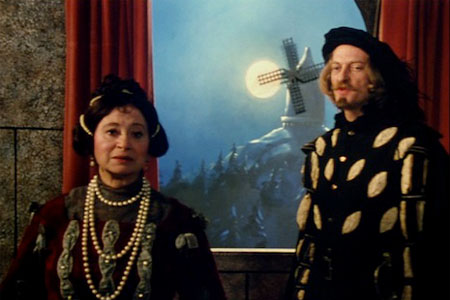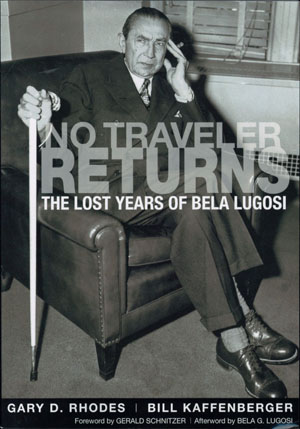With Venice opening tomorrow and a major lineup announcement out of New York, we’ve got a deluge of festival news to parse today. First, though, a couple of items of business: The Berlinale has announced that Wong Kar-wai will be the Jury President of the 63rd edition (February 7 through 17). And the 65th Locarno Film Festival was Olivier Père’s third as artistic director—and his last. Yesterday, the festival announced that Père “is leaving the festival circuit to become the General Director of Arte France Cinema.” Père himself has followed up with a blog post, punctuating his gracious thanks to many with two quotes, one from Jean-Pierre Melville, the other from John McClane (that’s right: Bruce Willis’s character in Die Hard).
Now then, Venice. Tomorrow through September 8. And one of the highlights of Venezia 69 will surely be Paul Thomas Anderson’s The Master. And lo, there’s a new (some say final) trailer:
Oliver Lyttelton writes up the Playlist‘s “10 Most Anticipated Films of the Venice Film Festival” and the Guardian‘s Xan Brooks previews the lineup’s “key contenders.”
On to Toronto for now (September 6 through 16). There are now blogs devoted specifically to Toronto’s Midnight Madness and Vanguard sections; and Cinema Scope is promising to make an “extravaganza” out of its coverage.
New York! That’ll be September 28 through October 14, and the Film Society of Lincoln Center has unveiled some amazing highlights of the 50th anniversary edition. Besides the onstage conversation between Noah Baumbach and Brian De Palma and the Directors Dialogues with Abbas Kiarostami, David Chase and Robert Zemeckis, besides the additions to the Masterworks program…
Dominique Benicheti’s Cousin Jules (Le cousin Jules, 1972)
Bahram Beyza’i’s Downpour (Ragbar, 1972)
Pierre Chenal’s Native Son (1951)
Michael Cimino’s Heaven’s Gate (1980; the restored version premiering in Venice)
Federico Fellini‘s Fellini Satyricon (1969)
Amos Gitai‘s Field Diary (Yoman Sadeh, 1982)
Alfred Hitchcock’s Marnie (1964)
Grigori Kozintsev and Leonid Trauberg’s The Overcoat (Shinel, 1926)
Manoel de Oliveira‘s The Satin Slipper (Le soulier de satin, 1985; the big one, running nearly seven hours and “mb the rep film event of the year,” as C. Mason Wells tweeted last night)
Laurence Olivier’s Richard III (1955)
Frank Oz’s Little Shop of Horrors (1986; the Director’s Cut)
Bob Rafelson’s The King of Marvin Gardens (1972)
Hans Richter‘s Filmstudie (1926)
Michael Roemer’s Nothing But a Man (1964)
Francesco Rosi’s The Mattei Affair (Il caso Mattei, 1972)
Jiří Trnka’s Old Czech Legends (Staré povesti ceské, 1953)
Peter Whitehead’s The Rolling Stones: Charlie Is My Darling (1966/2012)
… besides all that… Well, here’s the FSLC’s Nicholas Kemp:
The 50th NYFF will feature over 30 installments of television series Cinéastes de notre temps/Cinéma, de notre temps. Created by film critic and filmmaker André S. Labarthe and film theorist Janine Bazin in 1964, this program tapped working directors to create portraits of their peers, both historical and contemporary, providing unique insight into the life and work of filmmakers from around the world. Film Society Program Director & NYFF Selection Committee Head Richard Peña calls it “a kind of history of cinema, almost as seen by the New York Film Festival because so many of the directors in this series have been prominent in our own history.” Episodes on display include Jacques Rozier’s Jean Vigo (1965); Jacques Rivette’s Jean Renoir, The Boss: The Rule and the Exception (1967); Claire Denis’ Jacques Rivette: The Night Watchman (1990); and Olivier Assayas’ HHH, A Portrait of Hou Hsiao-hsien (1996). For the full list of programs, see the press release.
Men of Cinema: Pierre Rissient and the Cinéma Mac-Mahon celebrates the historic Paris movie house and its pioneering programmer Pierre Rissient. Rissient’s rejection of the French New Wave filmmakers and his programming’s emphasis on American film noirs and genre fare throughout the 1950s made the Mac-Mahon, in the words of critics J. Hoberman and Jonathan Rosenbaum, “a temple which, unlike the Hollywood film cathedrals of the 1920s, would show movies for movies’ sake.” The classic films being screened are Max Ophüls’ Liebelei (1933), Raoul Walsh’s Objective, Burma! (1945) and Pursued (1947), Otto Preminger’s Whirlpool (1949), Jules Dassin’s Night and the City (1950), Joseph Losey’s The Prowler (1951), and Fritz Lang’s The Tiger of Eschnapur (1959).
So, heavens, there’s that. And it leads us, perhaps somewhat anticlimactically, to the fall previews in general. Criticwire‘s Matt Singer asks, and a few dozen writers respond: “What movie are you most looking forward to seeing this fall? And just to make things interesting, I’m throwing in one wrinkle: you can’t pick Paul Thomas Anderson’s The Master and Quentin Tarantino’s Django Unchained.” Then you’ve got the Playlist‘s “15 Most Anticipated Films for the Rest of 2012” and “Flavorpill’s 10 Most Anticipated Fall Movies.”
Reading. David Fincher’s “work inarguably helped kickstart the title design renaissance of the 1990s, a revival that the medium still enjoys to this day.” The Art of the Title has spoken at considerable length with the director and, naturally, the presentation of the interview, interspersed with title sequences and other clips, is both bold and elegant.
“The cinema is home to any number of legendary asses: Bardot, Balthazar, Brett Ratner… and that’s just a sample of the Bs. Filmmakers have used them to a wide variety of ends, most often to tease, tempt, or titillate, but Sofia Coppola uses Scarlett Johansson’s as a cry for help.” David Ehrlich in Reverse Shot on Lost in Translation (2003).
John McElwee on Gary D. Rhodes and Bill Kaffenberger’s No Traveler Returns: The Lost Years of Bela Lugosi: “I’m a fan of Lugosi, have been going toward fifty years, but this and other Rhodes books put me, and I suspect others, in strictly dabbler class.”
In the works. Darren Aronofsky will produce and George Nolfi will direct “Mark Heyman’s Facebook thriller XOXO,” reports Cain Rodriguez at the Playlist.
For news and tips throughout the day every day, follow @KeyframeDaily on Twitter and/or the RSS feed. Get Keyframe Daily in your inbox by signing in at fandor.com/daily.





